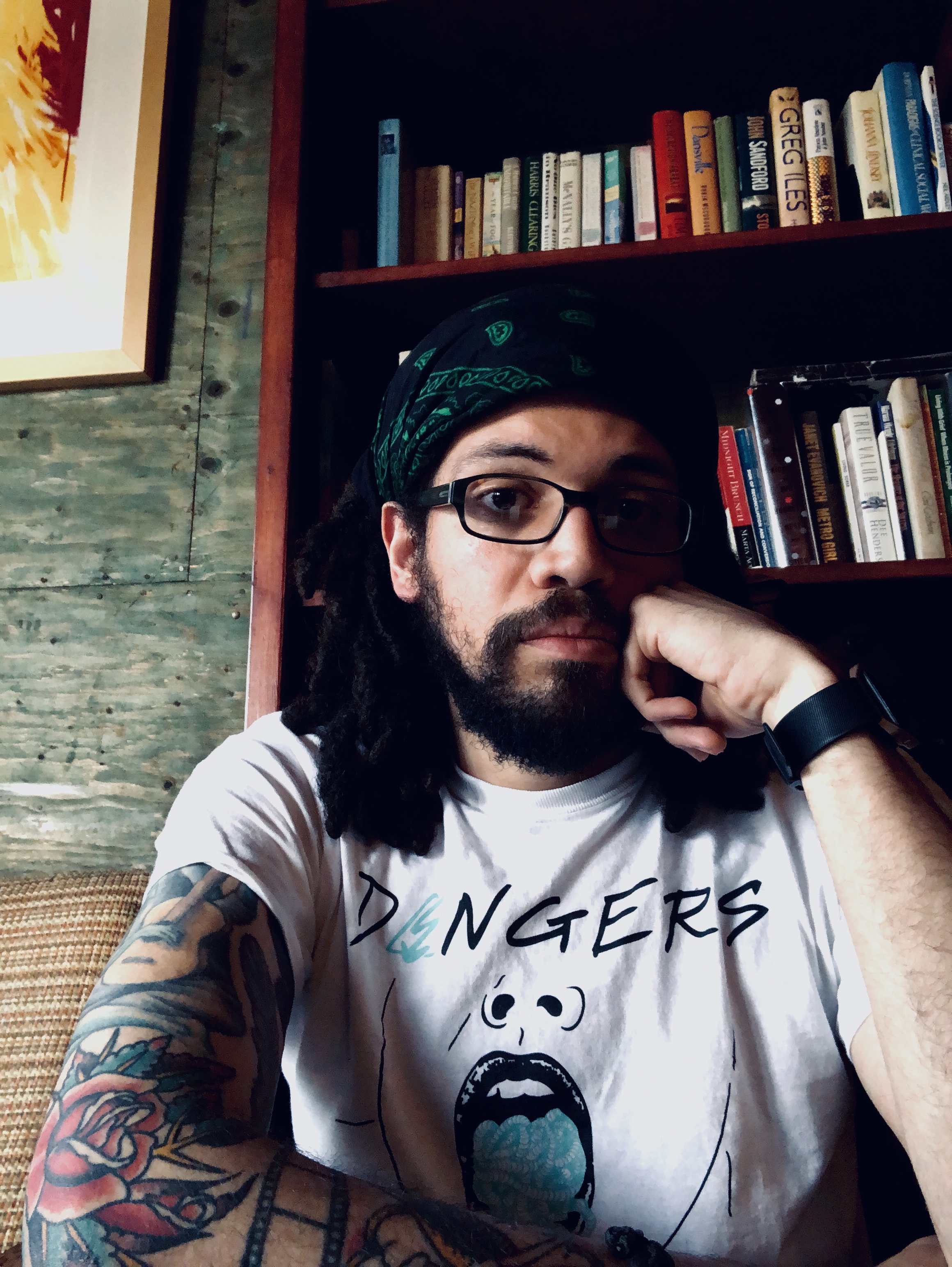ISSN: 1941-4137
POETRY THAT ENACTS THE ARTISTIC AND CREATIVE PURITY OF GLASS
POETRY THAT ENACTS THE ARTISTIC AND CREATIVE PURITY OF GLASS

Marcus Clayton is an Afro-Latino writer who grew up in South Gate, CA, and holds an M.F.A. in Poetry from CSU Long Beach. He is an executive editor for Indicia Literary Journal, currently teaches English Composition at various colleges in Los Angeles, and will be starting a PhD program in Literature and Creative Writing at the University of Southern California in the fall. Some of his published work can be seen in Tahoma Literary Review, the Los Angeles Review of Books, Spry Literary Journal, and DUM DUM Zine among many others.
Also by Marcus Clayton:
Almost Black
The Sky Falls at Midnight
Upon Gra(t)ing Student’s Papers for Income
Black Kids Dance with Sid Vicious Before the End Credits
The poem is adapted from the final few minutes of the film, Sid and Nancy, where Sid Vicious dances with some black children while waiting for Nancy. He seemed euphoric, especially considering the film (based on their actual lives) revolved so heavily around their addictions and sorrow. Johnny Rotten, Sid Vicious’ former bandmate from the Sex Pistols, lambasted the scene because it was too “happy” and did not blend well with the punk aesthetic. Being half black and growing up listening to punk music, I found the scene powerful as it destroyed the image of the violent punk and the thuggish black person — it showed that the stereotypes of criminality were truly nonexistent in these bodies, hence the crossed-out words being violent connotations. In brief, it is a celebration of joy, found within two cultures that I share, when outsiders would not normally see joy to be had.
Glass: A Journal of Poetry is published monthly by Glass Poetry Press.
All contents © the author.
All contents © the author.





